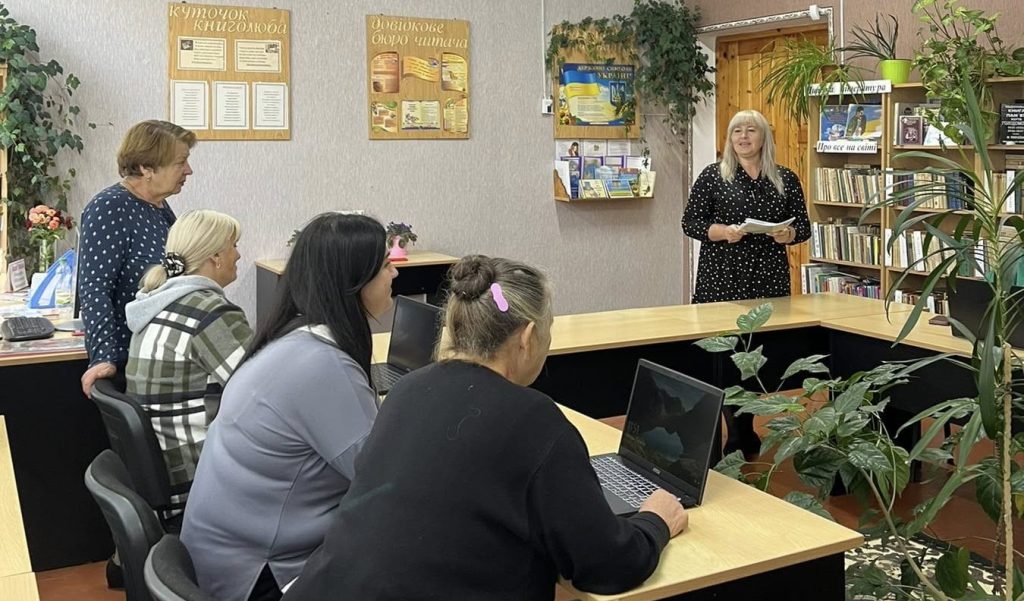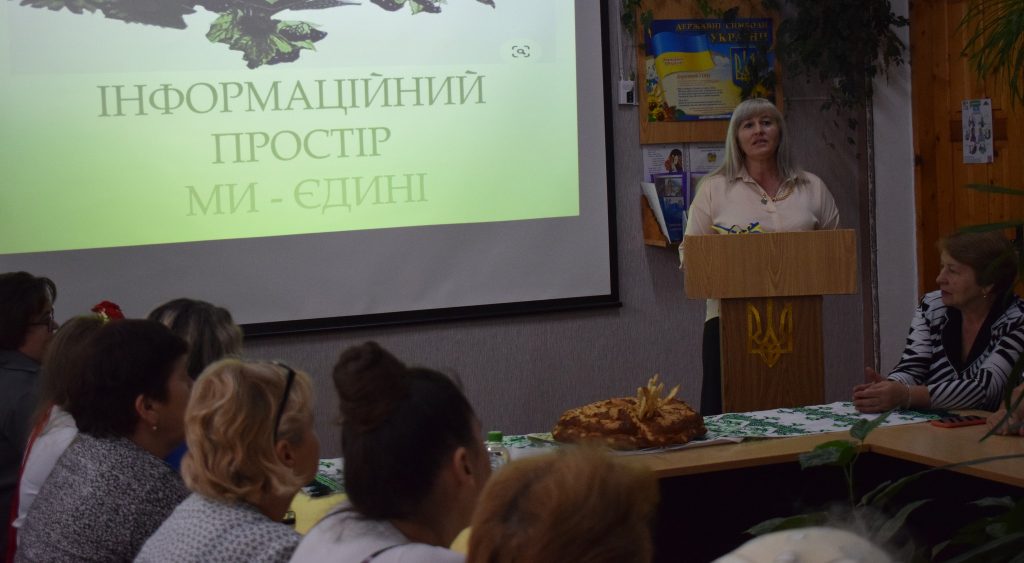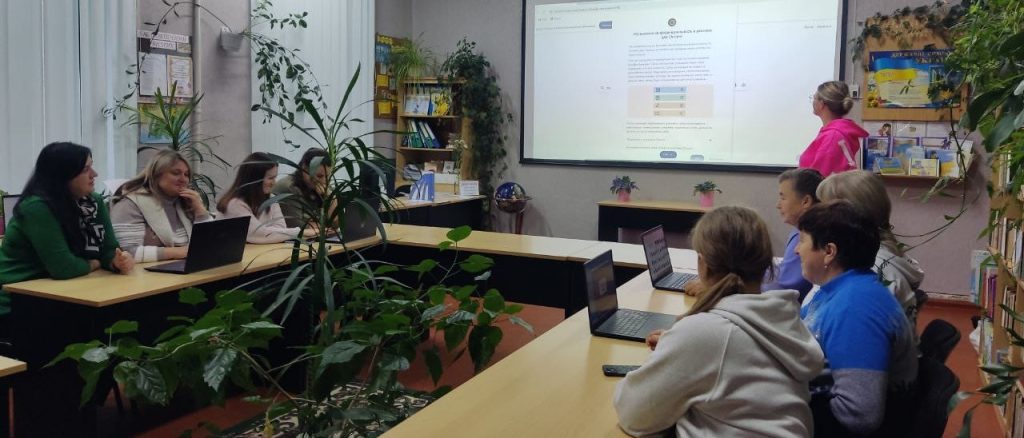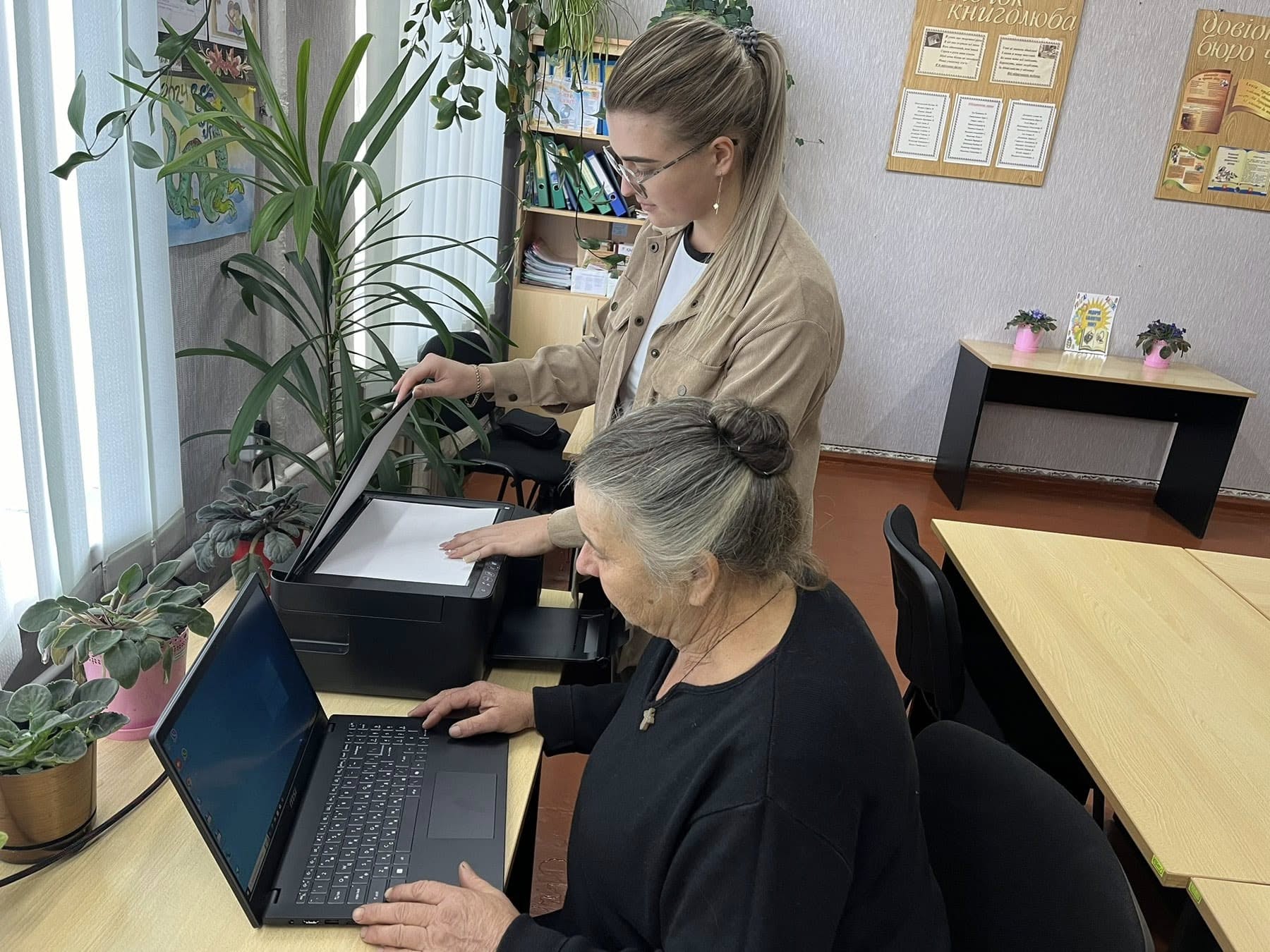Internally displaced persons who have found shelter in the village of Bukovina, which is practically the most remote from the regional center, are often deprived of access to the Internet and computer technology. Even to simply print a document or certificate, people have to take a bus to the city.
An initiative group solved this problem by modernizing the local library with the help of a microgrant. For it, the project authors purchased computer technology, furniture, and training equipment. The spacious room was transformed into a comfortable information center.

For all interested parties, useful courses in various areas were held here at the request of residents.
– In digital literacy classes: children and adults mastered working in computer programs, learned to use the Internet, and mastered the basics of media literacy. This allowed even IDPs of retirement age to use modern technologies, online public services, create personal accounts in municipal services, book and buy tickets for various types of transport, and solve everyday issues without queues and loss of time.
– The authors of the projects also organized free photocopying and printing services, which was a significant help for many. People were able to print resumes, applications, educational materials, and other important papers.
– A series of consultative meetings with specialists in various fields was held. Medical workers spoke about available public health services and the working hours of relevant institutions. Bank employees explained the range of financial services available in the community, provided recommendations on the safe use of financial products, and helped participants resolve issues such as opening accounts, transferring pensions from the occupied territories, receiving state aid, etc.
– Postal service employees reported on how their work in the village is organized, what services are available, and how to use them. This allowed participants to easily receive purchases by mail, pay bills, and arrange delivery of items to relatives in other regions of the country and abroad.
– During meetings with lawyers, participants most often asked about registering their place of residence, processing social benefits, housing, and work rights.
– Employment Service specialists spoke about employment opportunities in the region, retraining and training programs, and helped them write a resume and understand labor market trends. Familiarization with the basics of business inspired participants to think about starting their own business as one of the ways to self-realization and integration.
– A cycle of psychological and informational trainings contributed to reducing anxiety levels, increasing stress resistance, and creating an atmosphere of support and cooperation, as well as adaptation to new living conditions. Knowledge of how to notice psychological difficulties in loved ones in a timely manner and provide assistance became important for members of the host communities. Thanks to practical classes with psychologists, participants discovered new ways of processing difficult emotions through creativity.

The courses contributed to the social adaptation of internally displaced persons and the establishment of ties between them and local residents, which reduces the level of tension in the community. The space is open all the time. Displaced persons can communicate here with their relatives living outside Ukraine, IDP schoolchildren have the opportunity to join lessons or various competitions and Olympiads, international bridges during the period of online learning. Coworking has acquired particular value for local educators: teachers and students often use the space for learning and joint activities. This emphasizes the importance of the project for the entire community.


